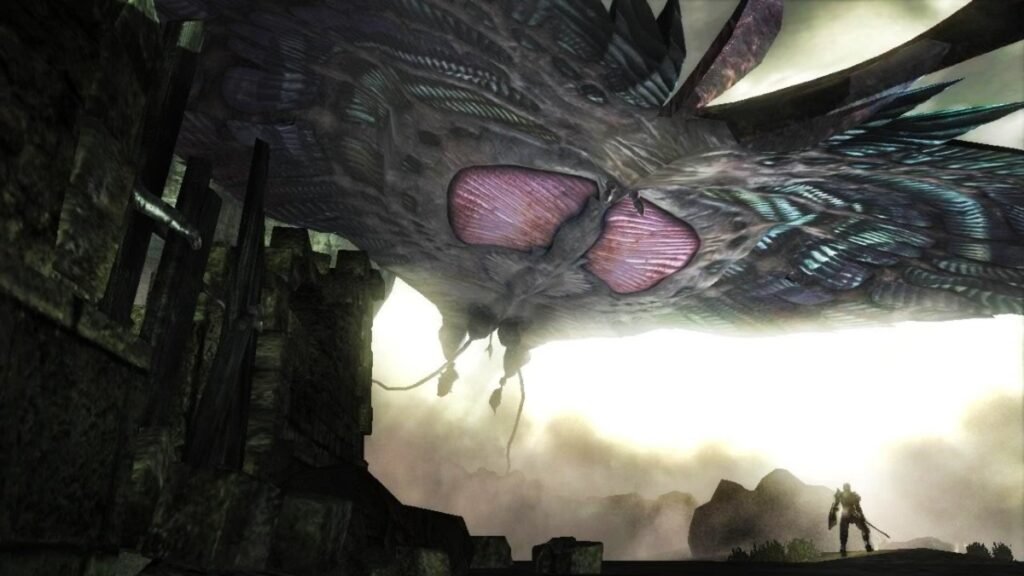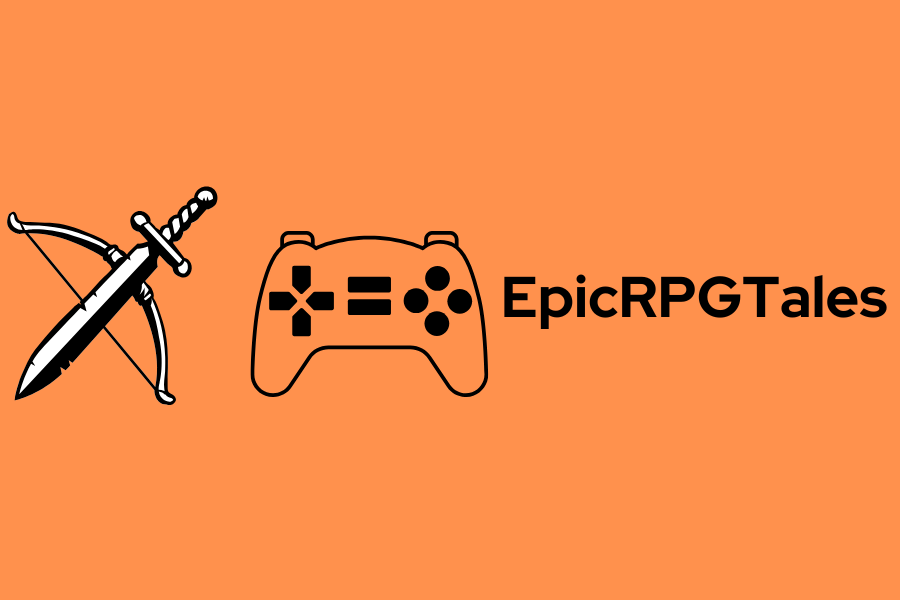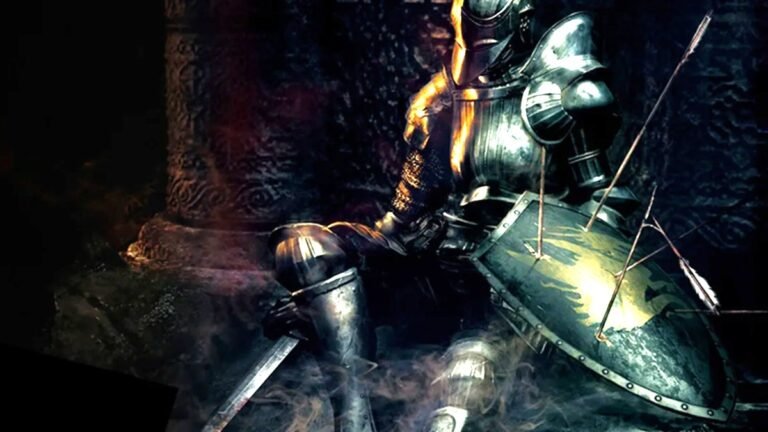When an import review arrived in PlayStation magazine back in 2009, the cult-like status of Demon’s Souls was born for me. One of the joys of the PS2 era was the breadth of discovery surrounding under-the-radar gems, and the PS3 had lost some of that in its early years. Now, here was a relatively obscure RPG from an established, but fairly niche studio (in Western society) that had writers explaining its qualities in a kind of gleeful enthusiastic whisper.
It was a challenging third-person action RPG where death wasn’t just a feature; it was a certainty. A spiritual successor to FromSoftware’s King’s Field series, Demon’s Souls put players in the rags of a hero brought to the kingdom of Boletaria to vanquish its fallen king, Allant, and ensure the Old One was neutralized. Unlike later FromSoftware action RPGs, Demon’s Souls’ quest was broken up into five separate worlds, all accessed from hub haven known as the Nexus (not a Wade Barrett in sight, unfortunately). Each world offered a uniquely brutal challenge where even the scrawny underlings could take you out if you were careless.
The now familiar journey was born from bludgeoned wretch, getting ventilated by everything, to armor-clad champion, ready to take on cosmic horrors and titanic foes. How the Souls games handle power progression without letting you feel all-powerful until you’ve sunk in some insane hours is a constant source of joy (and frustration, anger, tears, exhilaration, etc.). All these ingredients meant it was probably unsurprising that Demon’s Souls became a cult classic that laid the groundwork for some of the greatest RPGs ever.
Now, plenty of games got the cult darling treatment in the days before the internet became the frightening amorphous blob it is to us today, and their fate was usually to be beloved by a handful of people and kind of get left in the sock drawer of history. Demon’s Souls didn’t exactly blow up in Japan, having already received some negative feedback after a demo proved unpopular. Still, in the West, the formula was clearly resonating with players and critics alike, and it proved to be crucial not just for FromSoftware going forward, but also for the great PS3 turnaround.
Demon’s Souls and the Great PS3 Turnaround

Yes, the PS3, a console I have an incredibly soft spot for, had plenty of troubles. It could have seen Sony go the way of Sega. A hefty launch cost, an underwhelming launch lineup, a notoriously difficult console to make games for, and the emergence of the Xbox 360 as the hip new gaming star really damaged Sony in those first few years.
Of course, history tells you that changed. The introduction of PS Plus and top-tier exclusives such as God of War 3, Uncharted 2, and The Last of Us turned the maligned machine into an underappreciated success story.
But FromSoftware’s Demon’s Souls was part of a smaller wave of titles that helped push the boulder back up and over the hill for the PS3. in an age where consoles were becoming new technological marvels that focused on a lot more than just the games, there was a danger of the old ways being forgotten. Unfortunately, today’s PlayStation is further down that path. Still, we likely wouldn’t have got even that far if we didn’t have games like Journey, Tokyo Jungle, Puppeteer, Heavy Rain (yes, seriously), and Demon’s Souls adding flavor, creativity, and variety to the PS3 catalog.
In the fifteen-plus years since Demon’s Souls’ debut, FromSoftware has iterated on the formula multiple times, growing its stature in the games industry with the likes of Dark Souls, Bloodborne, Sekiro, and Elden Ring. Bluepoint oversaw a dazzling remaster of Demon’s Souls for the PS5, which ironed out a few of the creases, but removed some of its rough and ready charms.
Things might have been so different had Hidetaka Miyazaki not taken over the game’s development early on when it was reportedly an incoherent mess. And if the team had been challenged on that now legendary difficulty, created to bring back the spirit of the classic video game adventure, then we’d have been deprived of a whole lot since.
It would be understandable if you missed Demon’s Souls the first time around, given the PS3’s struggles, and by the time the remake arrived, it felt smaller than the expansive games that would come after it. But it is a crucial part of the RPG landscape we see today and the actual start of the Soulslike phenomenon.

